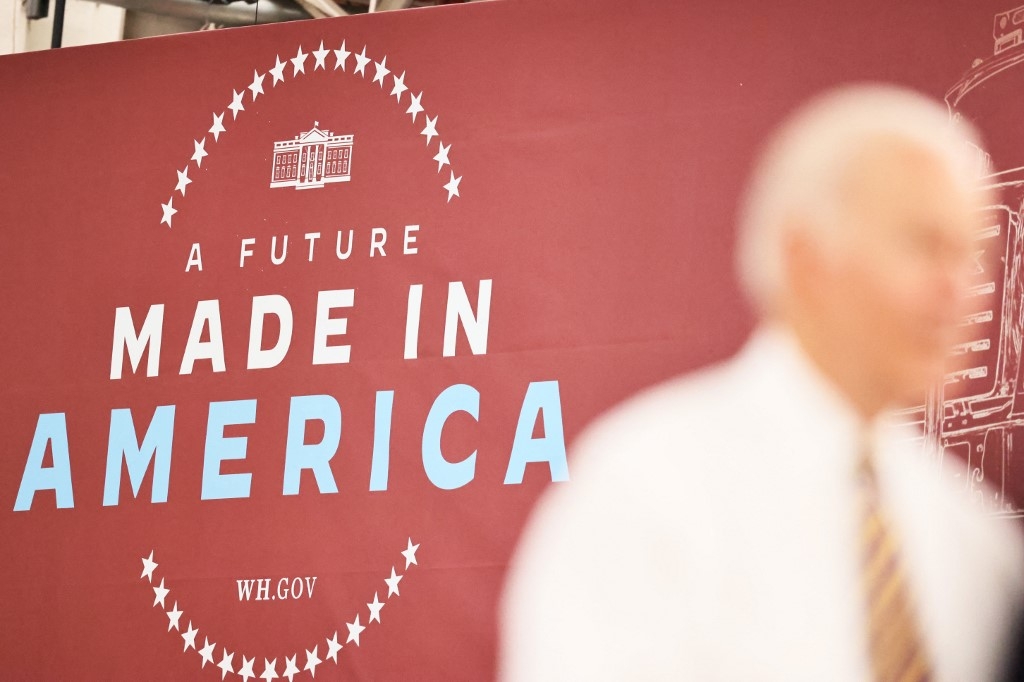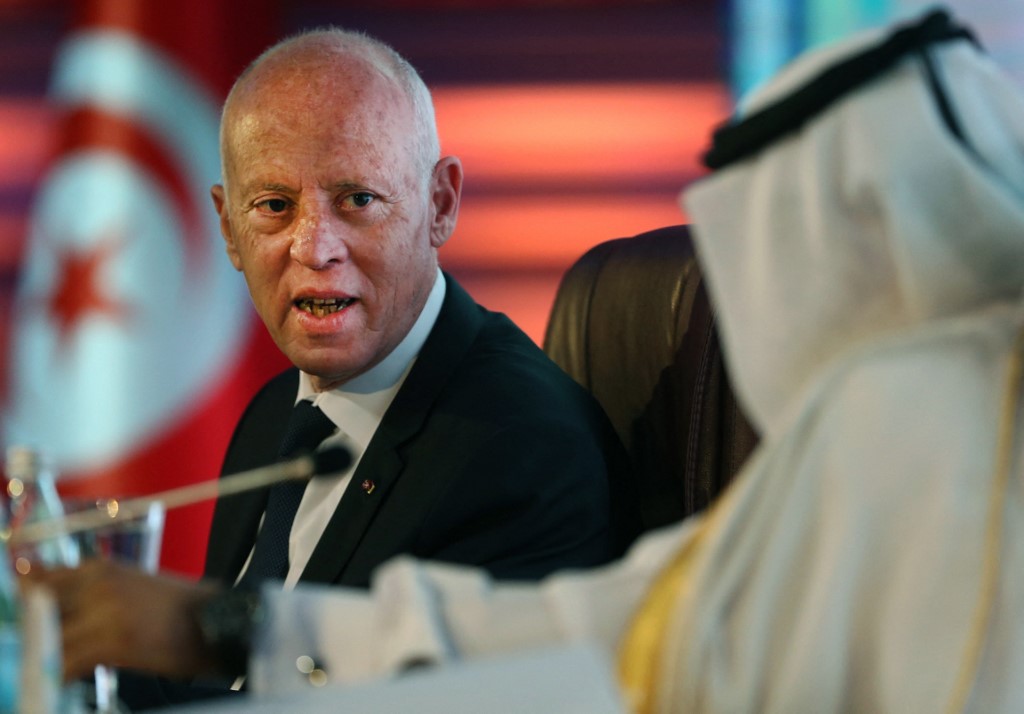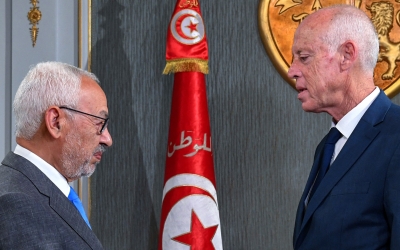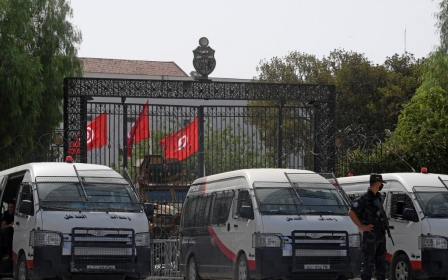Tunisia: Biden's tepid response exposes aversion to democracy

US President Joe Biden’s tepid response to the coup in Tunisia reminds us of a longstanding truth about American foreign policy - when it comes to the Arab world, democratic aversion is the operating principle.
What is particularly noteworthy about Biden’s lethargic response is that it is happening against the backdrop of his widely touted new US foreign policy agenda, which seeks to respond to the “defining question of our time”: the battle between democracy and authoritarianism.
Stability is a code word for supporting authoritarian regimes in the belief that they can better protect US interests from hostile forces
The initial White House reaction came from press secretary Jen Psaki. The Biden administration was “concerned about the developments in Tunisia” and aiming to “learn more about the situation”, while all sides were urged to exercise calm and to “move forward in line with democratic principles”.
As to whether Tunisian President Kais Saied’s sacking of the prime minister, suspension of parliament (with the backing of the military), limiting press freedom and making threats of violence constituted a coup, Psaki noted that “we would look to the State Department to conduct a legal analysis before making a determination”.
Secretary of State Antony Blinken’s response was more revealing. In a tweet that embodied the general apathy and incoherence of US policy towards Tunisia, he said he had a “good phone call with President Kais Saied today to discuss the situation in Tunisia. I expressed my support for Tunisia’s democracy.” In other words, Blinken spoke with the man responsible for destroying Tunisia’s democracy to confirm that he supports democracy in Tunisia.
New MEE newsletter: Jerusalem Dispatch
Sign up to get the latest insights and analysis on Israel-Palestine, alongside Turkey Unpacked and other MEE newsletters
Supporting authoritarian regimes
How can we best interpret the Biden administration’s lacklustre response to the events in Tunisia? What explains the unwillingness to take a more forceful position in support of democracy, when doing so would require very little effort and be in keeping with the new values-based US foreign policy the White House has been emphasising?
Rhetoric aside, a longstanding axiom of US policy has been to promote political stability in the Arab world over parliamentary democracy. Stability is a code word for supporting authoritarian regimes in the belief that they can better protect US interests from hostile forces emerging within and outside the region.
In a rare moment of candour, former President George W Bush, in a famous post-9/11 speech, admitted that this was the reigning American doctrine. “Sixty years of Western nations excusing and accommodating the lack of freedom in the Middle East,” he said, “did nothing to make us safe - because in the long run, stability cannot be purchased at the expense of liberty.”
This key principle of “democratic aversion” has been hardwired into US foreign policy thinking about the region. There is a widely accepted, albeit unstated recognition, that greater democracy does not easily translate into greater support for American interests in the region.
A significant chasm exists between popular nationalist sentiments on key geostrategic issues, versus the foreign policy preferences of the US. Analyst Tamara Cofman Wittes has observed that the “broad problem that haunts American democratization efforts is that … [the] general preference for democratic politics has long been tempered, in regard to the Arab world, by the knowledge that the victors of a democratic process in most Arab countries are unlikely to be the parties who share America’s policy preferences in the region.”
To quote former Secretary of State Madeleine Albright: “Arab public opinion, after all, can be rather scary.”
No democratic input
The Abraham Accords are a perfect illustration of this thesis. The announcement of an agreement between Israel and several Arab states was met with a euphoric reception among both American political parties and much of the US foreign policy establishment. Biden tried to claim ownership of this agreement by arguing that it was under the Obama-Biden administration that the groundwork for the deal was initially laid.
It is no coincidence that the Abraham Accords involved the participation of several Arab dictatorships. No democratic input from citizens was solicited or desired, and for very good reason. For most of the Arab world, recognition of Israel is predicated on justice for Palestinians. This is a position Israel refuses to consider, while the US is unwilling to press it for this concession.
The recent Israel-Gaza war that blindsided Team Biden has not resulted in any reconsideration of US Middle East policy. In fact, the reverse has happened. It was reported that the Biden administration, rather than working towards progress on the Israel-Palestine front, would instead focus diplomatic efforts on expanding the Abraham Accords.
These developments have certainly informed Biden’s thinking on Tunisia. If autocracy triumphs in Tunisia, the following hypothetical scenario is possible: feeling the weight of public expectations to improve the economy, Tunisia’s new authoritarian leaders (with the encouragement of the UAE and Saudi Arabia) will announce they are willing to sign up to the Abraham Accords.
Biden would then take a keen interest in all things Tunisian, an immediate increase in financial assistance would follow, and the new leaders in Tunis would be hailed for their visionary leadership, courage and statesmanship.
In an earlier MEE column, I predicted that a Biden administration would have little interest in supporting democracy in the Arab-Islamic world. The initial White House reaction to events in Tunisia has confirmed my prediction. In this context, let us not forget that the key foreign policy personnel advising Biden on the region worked in the Obama administration. While counter-revolutionary forces were crushing the Arab Spring, they looked the other way, rather than providing genuine support to democratic forces in Egypt, Syria, Yemen or Bahrain.
Tunisia can now be added to this list.
The views expressed in this article belong to the author and do not necessarily reflect the editorial policy of Middle East Eye.
Middle East Eye delivers independent and unrivalled coverage and analysis of the Middle East, North Africa and beyond. To learn more about republishing this content and the associated fees, please fill out this form. More about MEE can be found here.







